Growing vegetables has always been fun and exciting but planting vegetables in the right way takes a lot of work. Even the regular gardener made simple mistakes sometimes while cultivating vegetables.
Several vegetables are plants in a very different way which needs different kinds of care. Things like cultivation, irrigation, application of fertilizers, control of weeds, diseases, and insects, and protection against frost are some of the important activities to perform to grow your vegetables.
Well, it does not matter how long you have been gardening, mistakes are sometimes unavoidable. Well if you are planning to garden vegetables or have been facing many gardening problems then this article is for you. Today, in this article, we will discuss some common Vegetable Gardening Mistakes.
Wrong Spot
First thing first, if you are going to start gardening vegetables then the proper location should be chosen wisely where basic needs like water and sunlight are easily accessible to the plant. Choosing the wrong spot can lead to headaches later on.
Make sure your garden is not under the shade because most of the vegetables need at least six hours of sunlight to thrive. Having a garden closer to your house is always best, you can check on your plants more often and keep up with the harvest.
If the plants do not receive proper sunlight, water, and other essential elements then they will not generally produce fruit or if they do bear fruit it will be small in size and will not be flavorful than any grown in full sun.
Poor- Quality of Soil
Well, soil is one of the main factors in gardening. It provides life-sustaining water and nutrients. Using a poor-quality of soil always gives a bad result in growing vegetables.
Even after using adequate water and sunlight, plants will struggle to grow in poor-quality soil. Planting vegetables in good quality soil can grow with the fullest potential and experience fewer problems with insects and disease.

You can check the soil quality by analyzing soil pH and make minor changes accordingly with organic matter like compost or well-rotted manure. You can also till the soil to correct nutrient or pH imbalances, however, don’t overdo it. Similarly, moisturizing the soil with the proper amount of water also helps to keep the soil healthy and fertile.
Over Watering
Pouring water on the vegetables consistently is essential for good harvests. Proper irrigation helps soil to moisture and plants can grow healthily. Plants start to show signs of wilting and yellow leaves or even die if they do not receive the proper amount of water. It will be wise if your garden is near the water resources so you don’t have to struggle with irrigation.
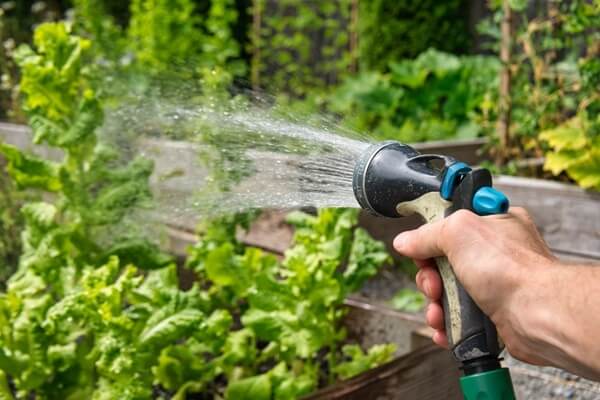
On the contrary, using excessive water also prevents plants from growing, and the leaves turn yellow. Plants that are grown in soil with excess moisture can experience a lack of oxygen, which may ultimately lead to root death and a decline in plant vigor. Overwatering can cause stunted growth, yellowing of leaves, and leaf scorch or burn.
Planting seeds at the wrong time
Well, various plants have particular requirements for sunlight, temperature, and moisture, and cultivating them at the wrong time can disrupt their natural growth cycle. Planting seeds at the wrong time can bring poor germination rates, stunted growth, or even the death of the plants.
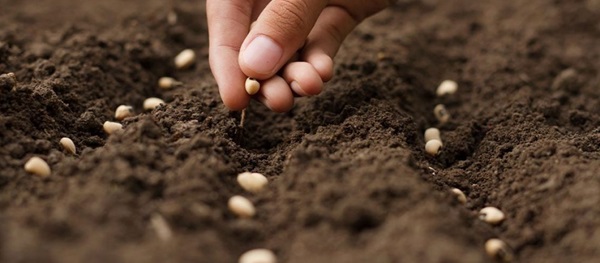
To avoid this problem, you can search the specific planting times for each type of seed and follow the guidelines for your region to give the plants the best chance of thriving.
Over Weedy
If your garden is full of weedy, then your vegetables must have not grown properly. Over-weedy gardens will not allow vegetables to receive proper sun, water, and food which ultimately prevents plants from growing.
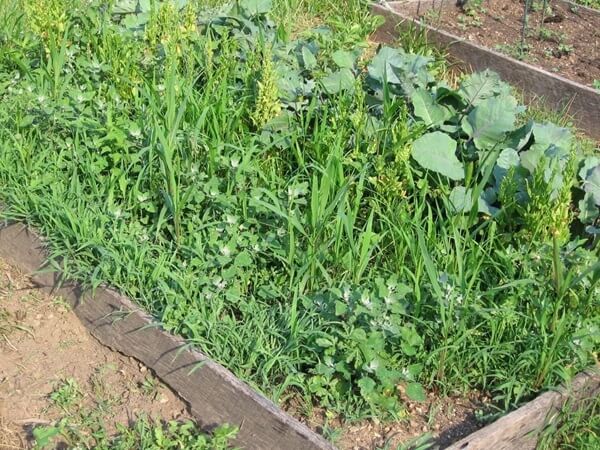
To control the over-weedy garden, you can spread mulch over the surface of the soil right after planting. When weeds emerge through the mulch, remove them by hand or with a sharp hoe that cuts at the roots. Avoid using herbicides in food gardens.
Over Planting and Crowding plants together
Well, this is another mistake you might make if you just started gardening. Overcrowding can prevent proper airflow, block sunlight, and promote pests and disease.
Overcrowding gardens is also difficult to take care of. So if you have thoughts of planting “all the things!” then you better drop that thought. Some vegetables like spinach, looseleaf lettuce, and arugula can grow shoulder to shoulder. However, most of the vegetables cannot do best if they are packed together too tightly. Other vegetables like broccoli, cauliflower, eggplant, and sweet corn need a bit more breathing room.
It’s crucial to understand the mature size and spacing requirements of each plant
Leaving plants Unmulching
Mulching your soil is a crucial step in improving its structure and ability to retain nutrients and moisture. While you may think that you’re simply covering the soil with a blanket, the mulch breaks down and releases valuable nutrients into the soil. This one simple act can enhance your soil, prevent weed growth, and give your beds and borders a more appealing appearance.
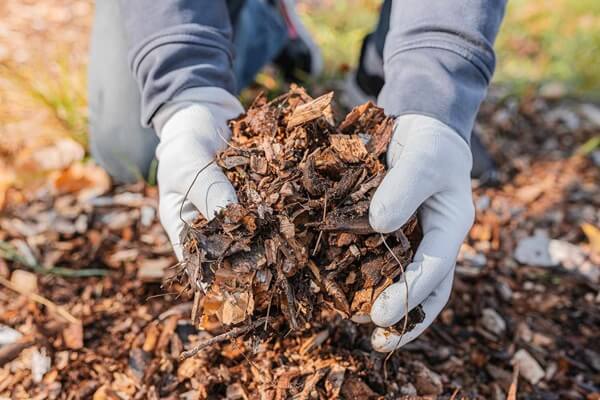
However, you should follow some preventive measures while mulching. Mulching in direct contact with plant stems can cause rotting which can lead to disease. Similarly, some Mediterranean plants such as lavenders and rosemary do not need mulching as they do not like or need the extra moisture or nutrients. There are several types of organic mulches such as Leaf Mulch and Wood chip mulch.
For effective mulching, we suggest clearing the site of all weeds and watering the ground thoroughly. Next, add a layer of mulch of at least 2 inches (5cm) deep to the area. Be sure to remove the mulch from the plant stems and use a rake to level the surface gently.
Not feeding your plant
If you want your plant to produce a good number of fruits, it is important to add compost every time you sow or harvest a new crop. If you don’t feed your plant then it can’t produce fruits on its own. Similarly, adding a Granular or slow-release fertilizer is also helpful which will feed your plants for up to 90 days.
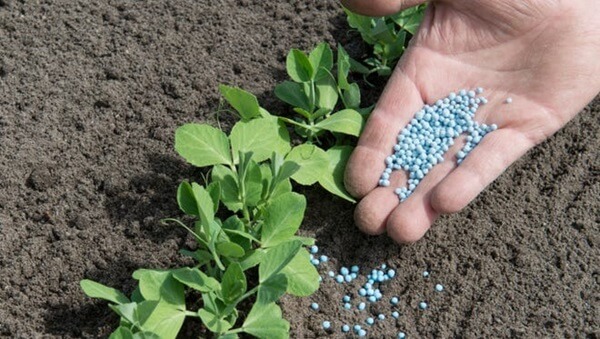
Likewise, composting plants reduces volume, kills pathogens, kills parasites reduces weed seeds, and also improves soil health and fertility.
On the contrary, you should not overfeed your plants. Some vegetables like tomatoes will produce more foliage than fruit if they’re given too much nitrogen.
Also Read, Planting Smarter: 10 Ways to Save Money When Shopping for Plants!
Not Giving Proper Support
Some vegetables need proper support to grow, especially climbers, twiners, creepers, and trailer plants. Vegetables like tomatoes, cucumbers, pole beans, and melons are some examples of creeper plants that need proper support that keep their fruit from touching the ground.
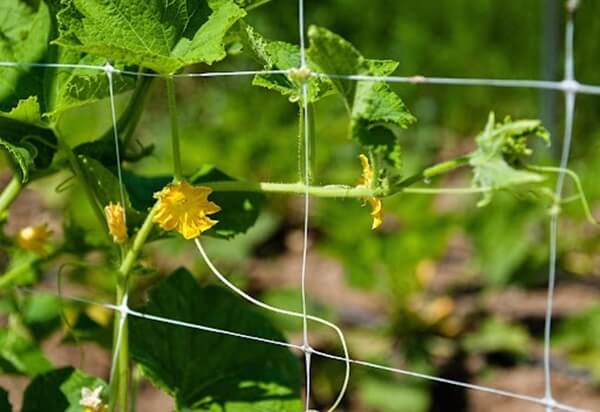
Offering support to these plants helps maintain air circulation, keeping the fruits healthier and cleaner above the soil. Using a trellis is the best method to provide support to your plant.
Avoiding Weather Condition
Many gardeners tend to ignore important weather conditions. It is important to check the forecast regularly to stay informed of any upcoming weather changes that could damage your crops. If a storm is expected, ensure that your taller plants are secured properly. If rain is expected for the next few days, skip watering your plants for the time being.
In case of an unexpected frosty night, checking your phone’s weather app will give you enough time to prepare extra protection, such as fleece covers or heavy blankets, for your plants.
FAQs
1. Why Proper location is important for gardening?
If the plants do not receive proper sunlight, water, and other essential elements then they will not generally produce fruit or if they do bear fruit it will be small in size and will not be flavorful than any grown in full sun.
2. What are the steps of effective mulching?
For effective mulching, we suggest clearing the site of all weeds and watering the ground thoroughly. Next, add a layer of mulch of at least 2 inches (5cm) deep to the area. Be sure to remove the mulch from the plant stems and use a rake to level the surface gently.
3. Why composting plants is necessary?
Because, composting plants reduces volume, kills pathogens, kills parasites reduces weed seeds, and also improves soil health and fertility.
You may also like to read: A Complete Guide To Grow And Care For California Poppy
